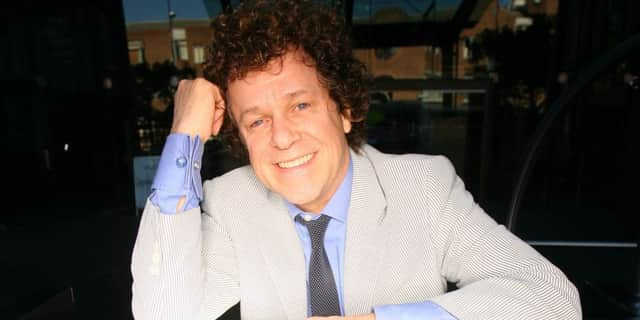Hometown gig as Leo Sayer goes Moonlighting in Worthing


He might be living in Australia now, a naturalised Australian, but he’s still a Sussex boy at heart, thrilled at the thought of the plaque which commemorates the fact that it was in Worthing that he composed the song Moonlighting – a song which even references Montague Street in its lyric.
“I went down to Montague Street in Worthing where I wrote Moonlighting, and I had a lovely surprise. Now it is a lovely walking street, and Worthing is just all gorgeous... and somebody had put this plaque up to say this is where Leo Sayer wrote Moonlighting.
Advertisement
Hide AdAdvertisement
Hide Ad“I spent a lot of my life time down in that part of the world,” says Leo. “They have moved the gig from Brighton (Concorde2 on November 19) to Worthing (Assembly Hall on November 22), and it is very fitting to be back.”
The tour also takes in The Brook, Southampton on Thursday, November 7.
“I went to school in Goring, and I used to party in Bognor and Littlehampton. I used to go along to the Shoreline club in Bognor.
“I was born in Shoreham, and I went to art college in Worthing. My secondary school was in Goring. It was a horrendous journey every day. I was frequently late and often got the cane. But I was very good at art. My art teacher got me through, and I got A level art. I managed to get through OK, but the rest of the academic stuff didn’t sit very well for me. Years later, I was discovered to be profoundly dyslexic.
Advertisement
Hide AdAdvertisement
Hide Ad“I couldn’t co-ordinate. But it was fine. I lived in my own dream world. I started creating great pieces of art and writing great operas in my head. But the music was there first in a way. In St Peter’s Church, there was a wonderful priest that had a marvellous singing voice. I used to think that he was a born singer. He taught me the fundamentals of using breathing. I became a boy soprano. Towards the end, I was singing with the school band, and when I went to art school, I started playing harmonica. Then I went to London straight after art school, but I didn’t think music would be a good career. I thought I would get ripped off, which I did – but that’s another story! I just didn’t think that I would make a living from it, so I stuck with the art even though I was a better singer than I was an artist. I was fairly prolific, but I realised the limit of my talents even though I managed to blag my way to some interesting gigs in art. But the limits of my talents were apparent to me.”
He’d moved up to London in late 1967, right at the moment that the youth revolution was changing the world. Here he met painters and musicians, started writing poetry and working on a book. At work he designed record covers and illustrated top 60s magazines. He frequented Soho and Kensington folk clubs and sometimes got up to play the harmonica.
Leo went freelance as an artist, but he got into trouble with too much work and not enough money, had a mild breakdown and came back down to home town Shoreham, staying for a while on a houseboat on the River Adur.
He flung himself into music and started writing songs, setting some of his old poems to music. Gradually Leo built up a band of mates that called itself Patches. Patches started playing gigs all over the south coast, one thing led to another and Leo met David Courtney – the start of a remarkable creative partnership. At David’s Brighton flat, the two started writing. Leo was on his way.
Advertisement
Hide AdAdvertisement
Hide Ad“It took me a little while to get my trust in making music for a living, but I had already had some experience of life as an artist, going up to London, and travelling around trying different things and working with people in the commercial art world – and that experience really, really helped. Some of my contemporaries like Marc Bolan were a lot younger than me. He had less life experience than I did.”
And so he was mentally equipped to cope with success when it came, Leo says: “When John Lennon met Yoko Ono, he must have thought that this feels right. John Lennon was one of those people who trusted their instincts. You have got to be mentally saying yes, rather than no. I was very much open to adventure.”
Part of that adventure is the fact that Australia is now home: “I like the lifestyle here. I love the fact that I am miles and miles away, like Ernest Hemingway writing in Spain about America. It is good to be an exile. I saw that if I had stayed in England, that creative side to me could have been subservient to the TV personality. I felt that that could have become my life.”